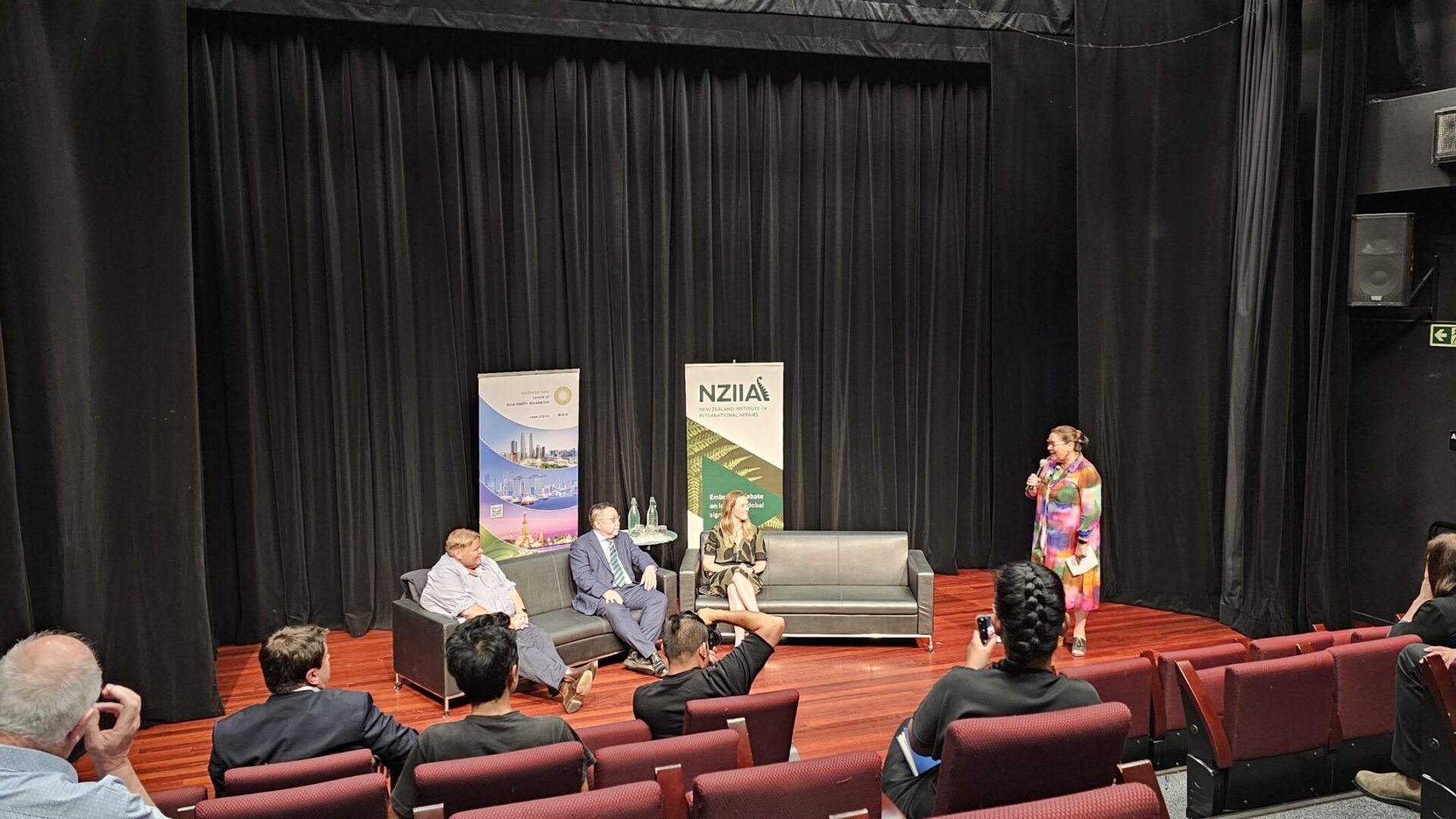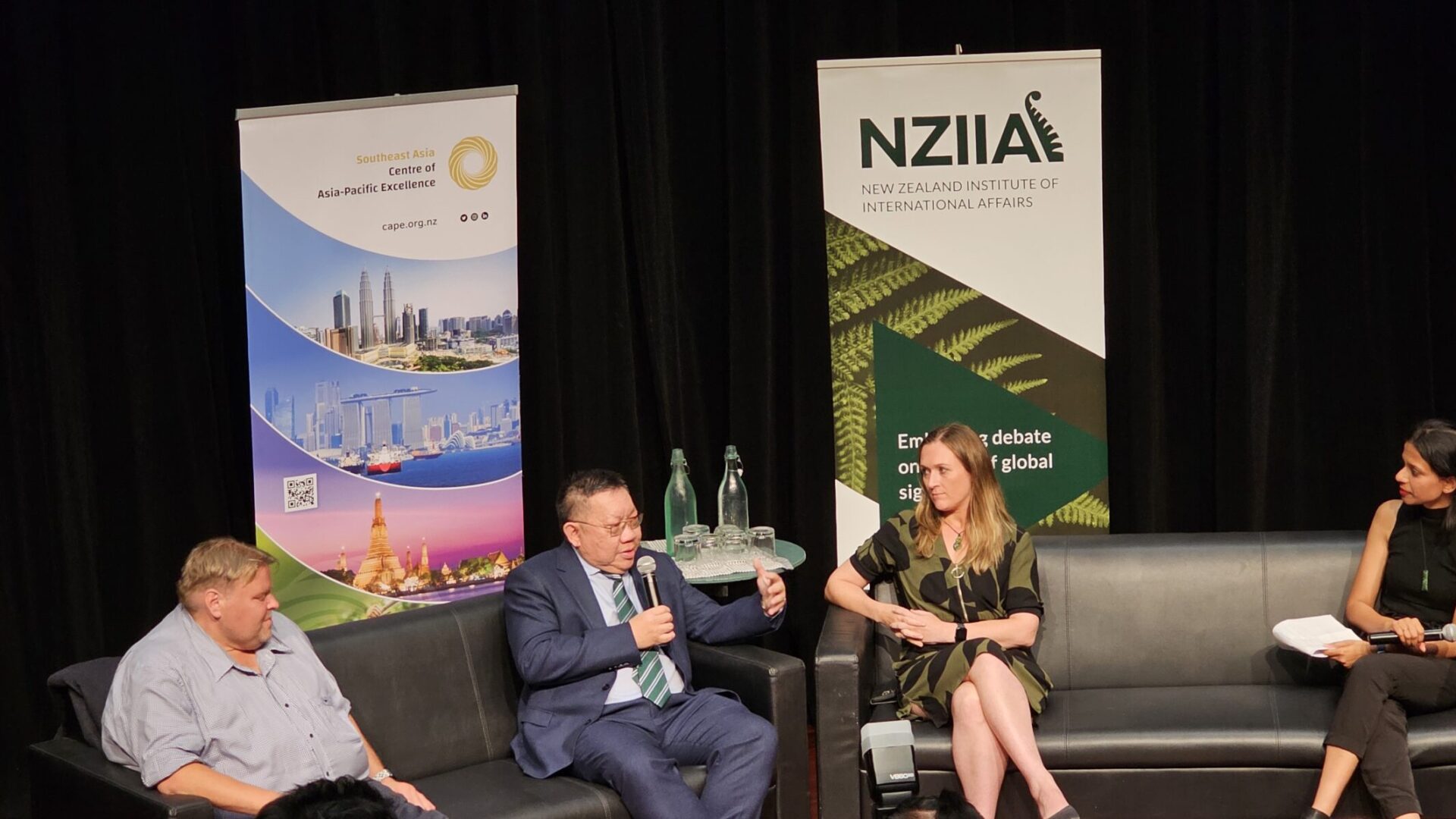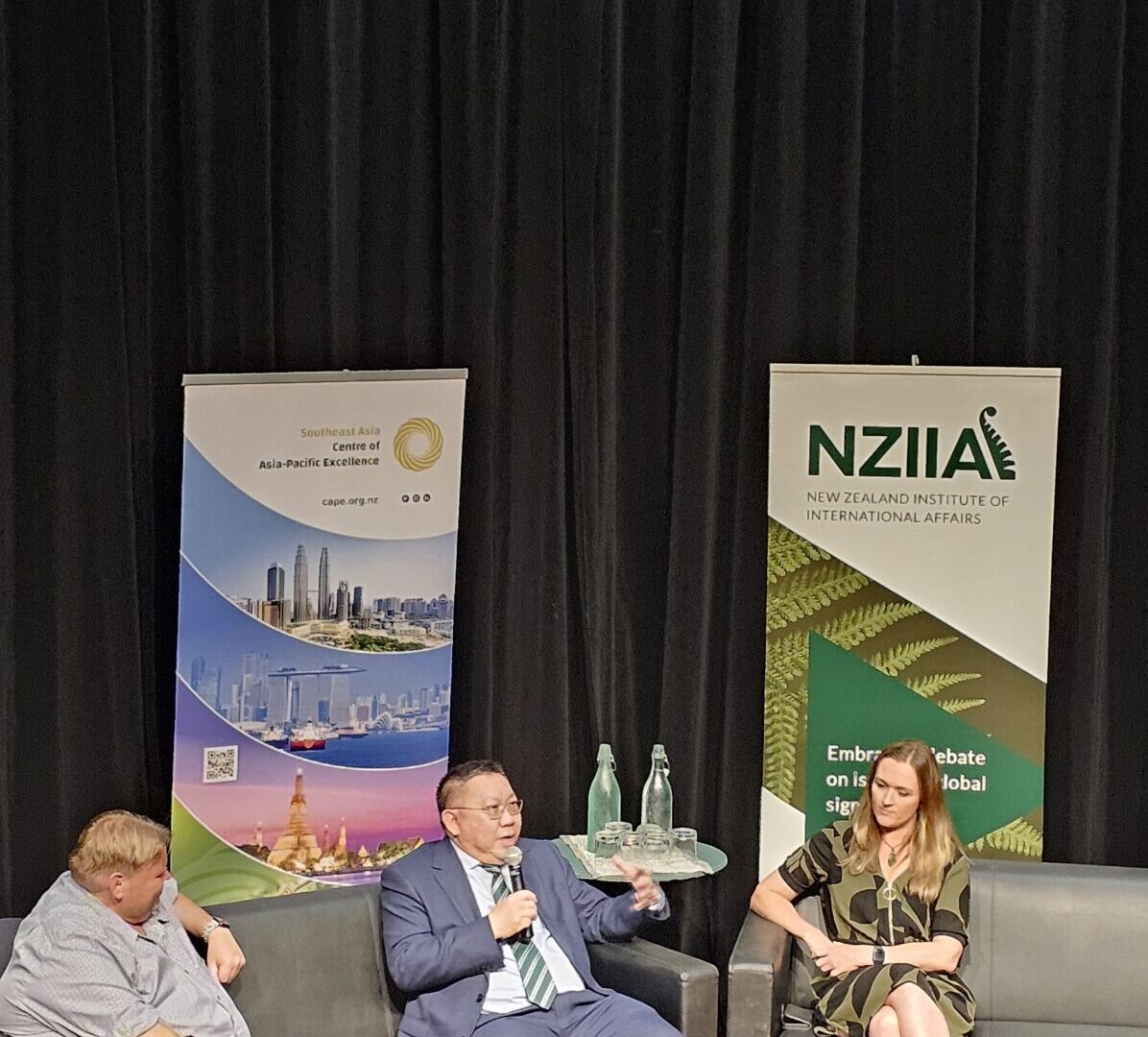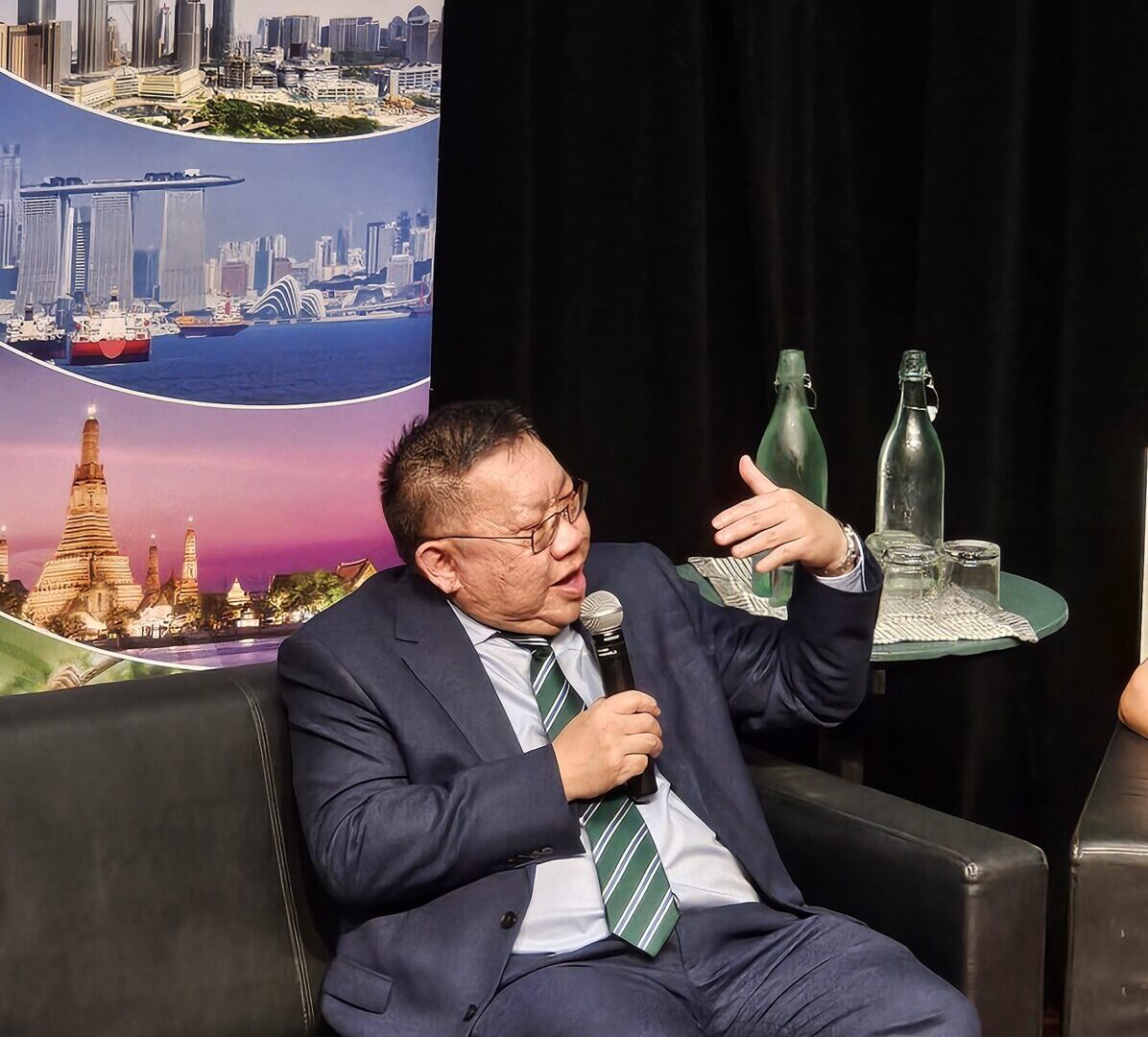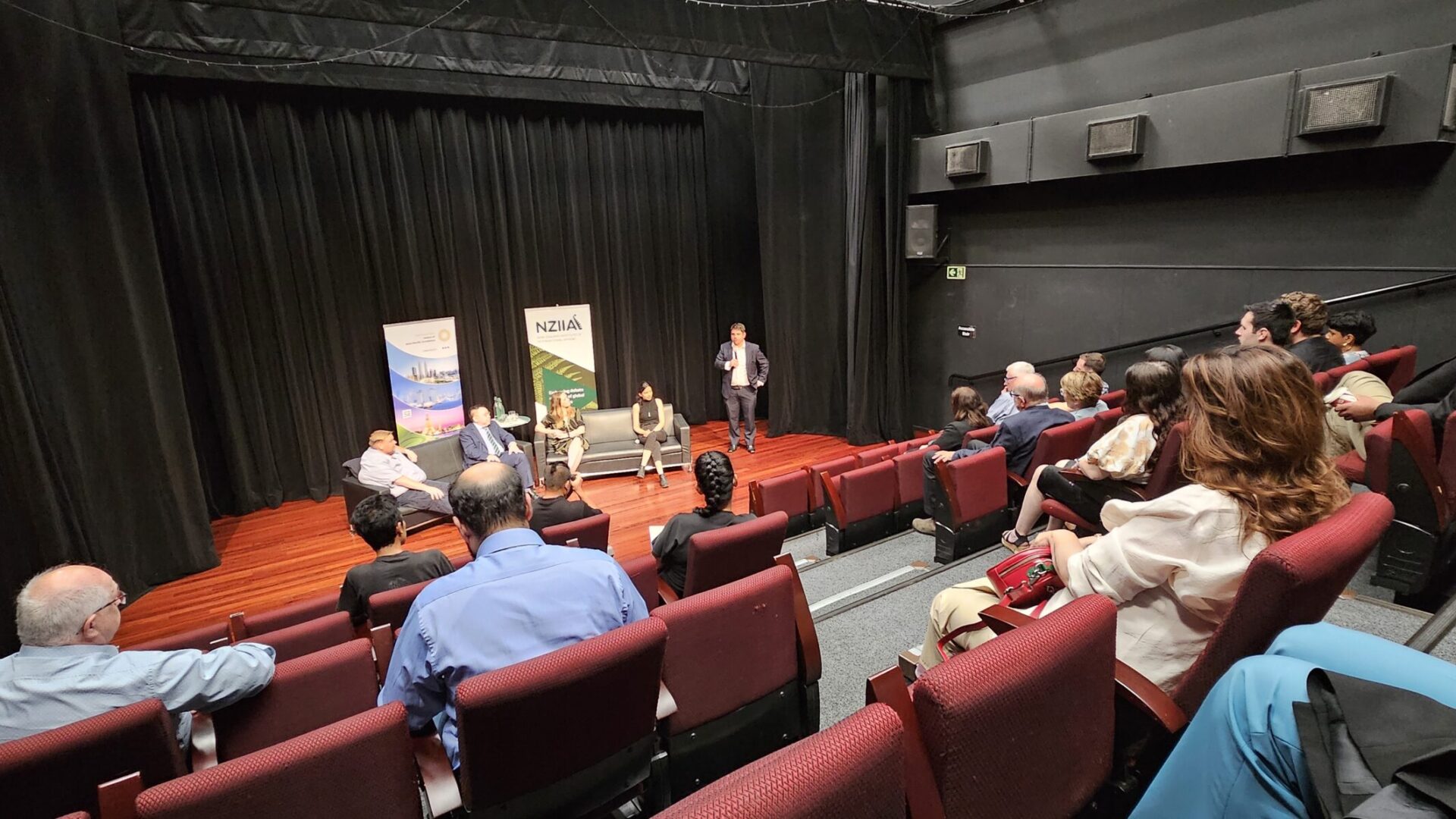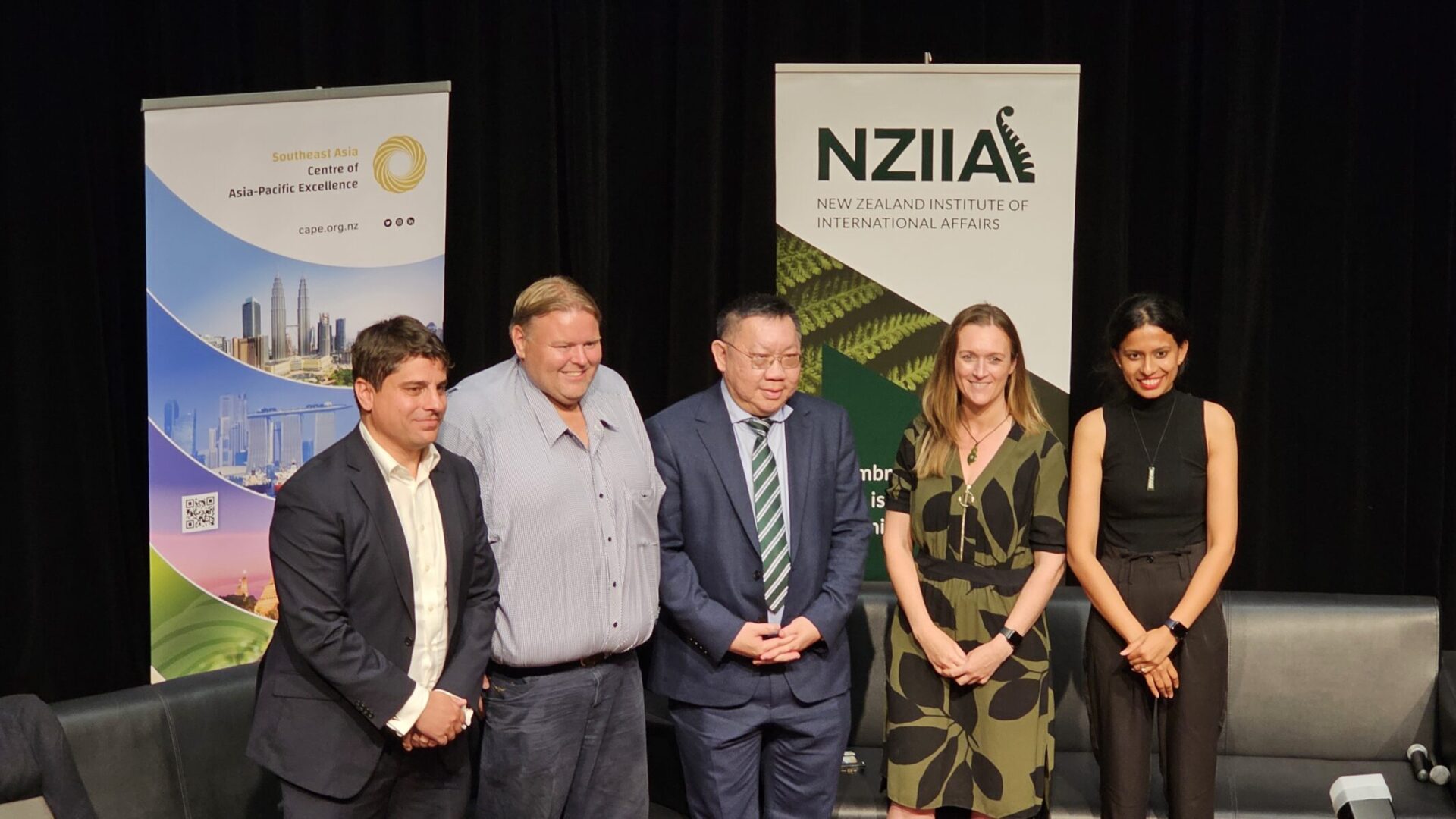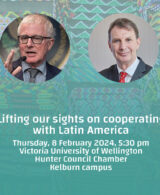Geopolitics in Asia: Navigating Sustainable Development and Diplomacy
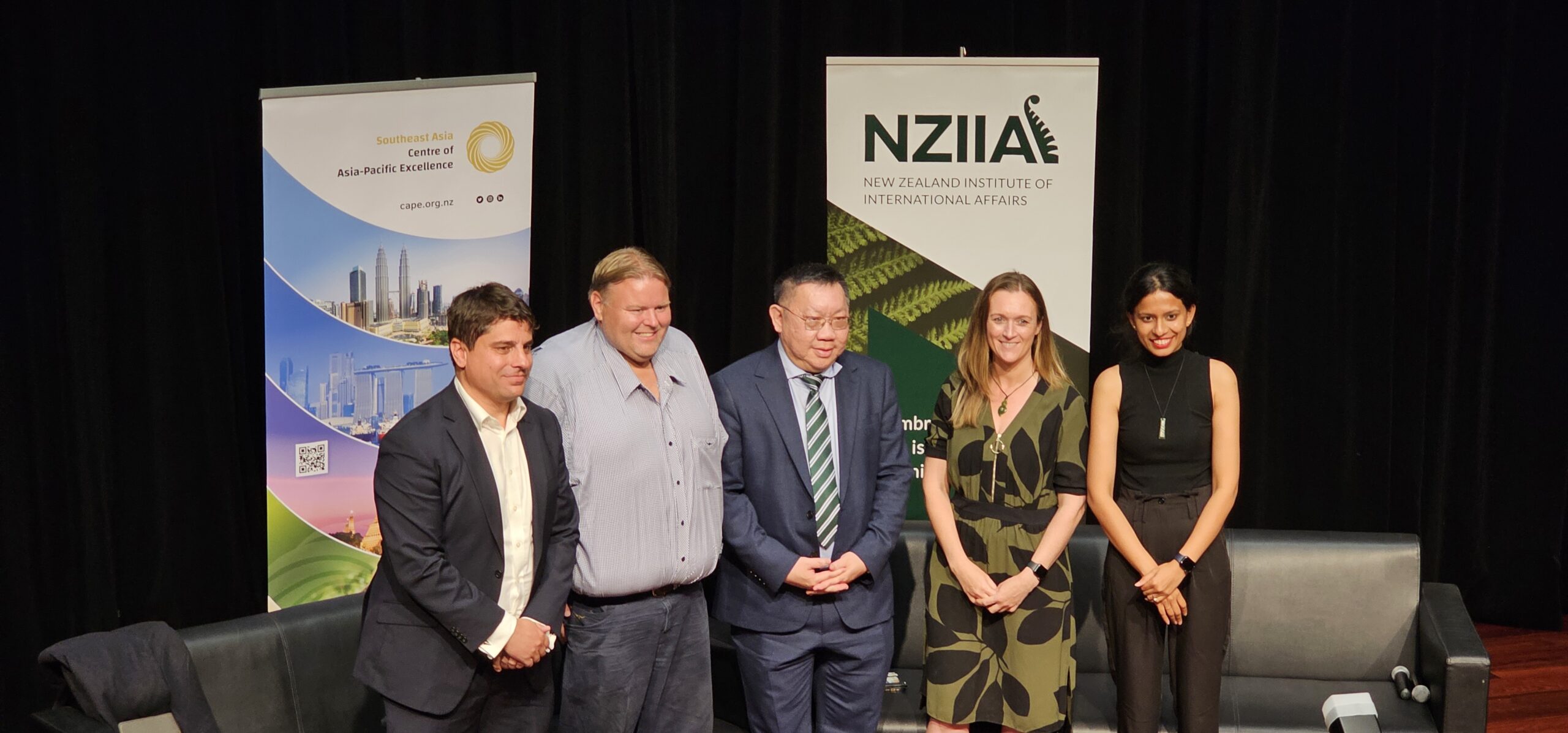
1 February 2024
On Tuesday 30 January, we had the pleasure of partnering with NZIIA Palmerston North branch for another regional development activity, enhancing local understanding of Southeast Asia. We were lucky to hear insights from Hayden Montgomerie, Toni Grace, and our director, Professor Siah Hwee Ang on sustainable development and trade engagement with Asia.
All panelists identified that New Zealanders need to improve our knowledge and perspectives on Asia. It’s a fast-moving economy which changes day-by-day, and we lack sufficient journalism and connection to be up to date with the latest developments of the region. Youth connection was noted as a valuable focus area: “It needs to be more than a holiday destination”, said Hayden Montgomerie. Building relationships that can last a lifetime is integral to good, sustained connection between regions, for trade, development, familiarity, and beyond.
Toni Grace translated these ideas into the context of Sustainable Development Goals (SDGs): The need for multi-level solutions and interconnected thinking between SDGs and communities means that a thorough understanding and strong people-to-people ties are necessary to gain any ground in this area. Key SDG work-ons for NZ with Asia, Toni said, were Zero Hunger, Clean Water and Sanitation, and Responsible Consumption and Production.
When discussing how to improve our understanding and connectivity, some focus areas from the panel were lower-level engagement, using regional organisations, and properly reciprocating relationships. Diplomatic resources are only limited as a small country, and the invaluable people-to-people connection comes in force through cities, universities, businesses, and students. Encouraging smaller-scale international engagement is a must. New Zealand lacks our own regional organisation, and subsequently should be smarter with the way we utilise our involvement in outside multilateral organisations. We can benefit from their joint buy-in, resources, and coordination capacity, plus we can get a seat at the table for important discussions more than we do currently. These regional organisations give us unique insight into the diversity and culture of these regions, which is key to sustaining relationships. Lastly, the New Zealand ‘transactional’ mindset needs to change. Distance is still an issue for NZ in Asia, and we need to be actively inviting people to our country and putting sufficient effort into these connections in order to access their real and sustained value.
In terms of next steps for SDGs, we need to be increasing discourse and awareness about what SDGs are, focusing on the change-making and proactive adaptation as opposed to promoting what is already done. The key here is that although SDGs seem complex, they don’t have to be! Businesses should start thinking more about how they can act within the capacity of the planet and its people, how they can give back to communities, and how they can integrate awareness into all their staff instead of one sustainability team. This will empower better and more diverse sustainability policy, and allow for innovative growth.
This event was a very engaging one, and we’d like to sincerely thank the panellists for their time and expertise. Branching out from Wellington and Auckland to have these ‘next-step’ discussions is always so valuable for participants and small businesses in our regions, increasing their knowledge and helping them to thrive as exporters.
Southeast Asia CAPE
